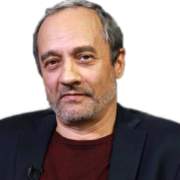

How to stop the war between Ukraine and Russia? The topic became trendy at all international summits. Only a few individuals chose not to offer mediation services to resolve the conflict. Some hoped to realize their objectives, and others wanted to be heard by someone.
The entire World is at stake. Will I head up the group?
Among the others there is the last dictator of Europe, Alyaksandr Lukashenka. A few months ago, he suggested declaring a ceasefire and initiating peace discussions without any conditions. This proposal implies that the war began due to a misunderstanding, which could be resolved through negotiations.
The Belarusian dictator is entertaining in his attempt to achieve something in diplomacy. He is unwanted and prohibited from entering respectable nations. Thus, his proposal to become a peace mediator serves as his last opportunity to make a name for himself in the world.
Also, former US President Donald Trump missed the publicity. He is quite an attention seeker as well. In September, he wrote on his social media platform Truth Social, addressing Russia and Ukraine:
– Be strategic, be smart (brilliant!), and get a negotiated deal done now. Both sides need and want it. The entire World is at stake. Will I head up the group?
His question hung in the air and remained unanswered.
The Wall Street Journal reported that China’s special representative, Li Hui, recently advocated for a truce between Russia and Ukraine. However, he suggested that Moscow should maintain control over the territories it has occupied. China’s perspective is clear – if the international public opinion accepts the occupation of part of Ukraine, they may also approve the occupation of Tibet and Taiwan in the future.
Who owes whom what?
Li Hui arrived in Moscow on the 26th of May. The day after, the Russian Ministry of Foreign Affairs showed its support and comprehension of the Chinese standpoint in a public statement. In the interview with TASS, the Deputy Minister of Foreign Affairs, Mikhail Galuzin, listed several conditions under which Russia will accept the war’s end.
There are a total of nine conditions, seven of which are significant, while the other two are unrealistic. It’s impossible to meet unrealistic requirements since they are not achievable. However, the Russian Ministry of Foreign Affairs insists on the denazification of Ukraine, even though it’s an unfeasible demand. Furthermore, Russia is demanding the removal of potential security threats within Ukraine despite having initiated the invasion, not Ukraine.
The substantial conditions are straightforward and not unusual. Moscow wants Ukraine’s Armed Forces to cease hostilities, while Kyiv should stop receiving weapons from Western sources. Ukraine needs to demilitarize by disarming itself, and Kyiv should avoid pursuing further integration with NATO and the EU. According to Galuzin, Ukraine must accept the new territorial reality. Galuzin suggests that Ukraine should come to terms with the new territorial situation, which includes losing Crimea and part of Donbas. Kyiv should recognize Russian as an official state language.
Finally, Ukraine must uphold fundamental human rights, including the right to practice one’s religion freely. The final requirement seems hypocritical, considering that it comes from a country that penalizes individuals for online comments and restricts Jehovah’s Witnesses from conducting group Bible study sessions.
Martial law, the war economy, the war censorship
To provide a complete picture, the Russian MFA should add two more conditions to the list: rebuilding all the monuments from the Soviet and Tsarist times and renaming the streets in Ukraine to their previous Soviet names. A peace treaty will be impossible without these conditions, and the conflict will persist.
The peace agreements that have been proposed are a mocking gesture. The proposed peace arrangements are not genuine and reflect the Kremlin’s stance. Apart from the alleged and mythical threats to Russian security, all the listed demands pertain to Ukraine’s domestic affairs. The Kremlin is trying to control its neighboring country by dictating how it should live and develop.
The trend of prioritizing Moscow over a European future for Ukraine was evident during Viktor Yanukovych’s time in power. Unfortunately, this resulted in Yanukovych losing his position and Ukraine losing Crimea.
The Kremlin likely knows the demands are unachievable, which was their intention. The war is of great significance to them as it serves as a fundamental aspect, a tactic, or a way to exert more control over their population. Is there anything else besides martial law, the war economy, war censorship, and wartime laws that could solidify a dictatorship and strip citizens of their hope for freedom?
Aleksandr Podrabinek for vot-tak.tv, pj/belsat.eu
Translated by PEV, L. Zdort
The opinions and thoughts expressed in the text reflect only the author's views.

